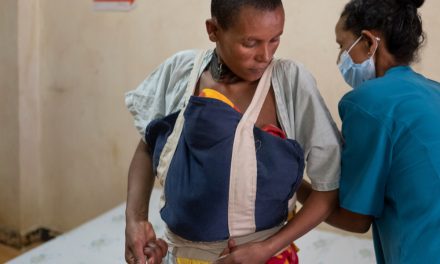The European Commission (EC) has awarded a nearly-$16 million grant to the Heart Omics in Aging (HOMAGE) project, which Emory University and 16 other collaborating centers in 10 countries are participating in.
The study aims to better identify more specific heart failure biomarkers and the development of methods for earlier detection in the elderly population. Biomarkers, or biological markers, are traceable substances found in organisms that are used to assess different aspects of their health.
In this project, researchers will use interrelated data from fields such as genomics, proteomics and transcriptomics to validate biomarkers that can examine future risks. This will further understanding of current mechanisms, signaling pathways and therapeutic targets involved in health failure, according to a March 18 University press release.
“It’s going to take some time because the technology has far superseded our knowledge,” Professor of Medicine and Director of Heart Failure Research at Emory Javed Butler said. “We have very high technology that can tell us what exactly is circulating in people’s blood but [understanding] what exactly that means will take some time.”
This five-year project will collect data from around 20,000 patients from 10 countries, according to Butler. Emory will use the Health Aging Body Composition Study, funded by the National Institutes of Aging, to assess the health of 3,000 elderly individuals.
Emory applied for this grant two years ago, but the EC denied its application.
After changing the fundamental sciences involved in its approach by focusing more on genomics and disease identification, Emory reapplied last year and was presented with the grant.
Heart failure is becoming increasingly prevalent worldwide because of individuals in general living longer, and has become the leading cause of mortality in patients who are more than 65 years old, according to the press release.
Butler said this causes some patients to come to the hospital multiple times for heart failure, costing Medicare, the government and hospitals an exorbitant amount.
“If you are not being too successful on treating heart failure, then there’s a very high mortality rate and a very high readmission rate,” Butler said. “We just need to re-look at the whole thing and see if we can prevent it. [The study] is sort of a new way of looking at [heart disease].”
Butler also mentioned that heart failure in the elderly in the Western Hemisphere is different from the traditional conception of the disease – narrowing blood vessels due to a buildup of chemicals which causes the heart to stop working and results in a heart attack, or heart failure.
The disease as it appears in the elderly in America and elsewhere, he said, differs because current methods for detecting heart failure do not work for them.
A clinical trial to identify new treatments of heart failure will take place simultaneously.
Regional, race and gender differences in the disease will also be be evaluated.
–By Shivangi Singh
The Emory Wheel was founded in 1919 and is currently the only independent, student-run newspaper of Emory University. The Wheel publishes weekly on Wednesdays during the academic year, except during University holidays and scheduled publication intermissions.
The Wheel is financially and editorially independent from the University. All of its content is generated by the Wheel’s more than 100 student staff members and contributing writers, and its printing costs are covered by profits from self-generated advertising sales.




